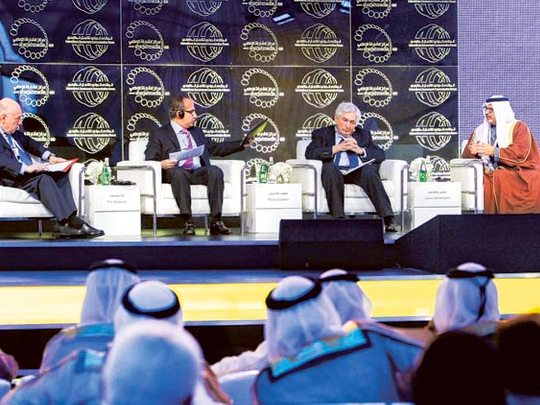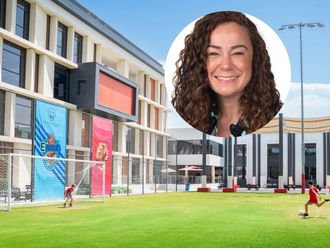
Sharjah: Government officials are failing to “effectively influence the narrative of the UAE” when confronted with inaccurate media reports and rumour-mongering, Dr Anwar Mohammad Gargash, Minister of State for Foreign Affairs and Minister of State for Federal National Council Affairs, said on Sunday.
The minister was speaking during a session at the International Government Communication Forum (IGCF) in Sharjah on Sunday.
The UAE occasionally comes “under attack” from “inaccurate stories” and “radical Islamists” on various issues, Dr Gargash pointed out.
He advised government spokespersons to improve dialogue with the public and media to counter threats to the UAE’s reputation, warning that there was “no magic wand” that could make malicious rumours disappear.
IGCF session moderator Tim Sebastian, former host of BBC show Hardtalk, had asked Dr Gargash how government spokespersons should manage press enquiries, especially “sensitive” ones.
“This is not a region that is easy for journalists like me to work in,” Sebastian observed.
“I agree that we have not done a perfect job, but we are improving. I think every country has issues ... these have become extremely difficult to handle in a fast-moving news cycle,” Dr Gargash replied.
Reacting to comments on labour conditions in the UAE, Dr Gargash said “we are improving, but when standards of what is expected go higher, we need to catch up with them. The UAE is working hard on this issue.”
He pointed out that government spokespersons have to tackle various fronts at the same time, which makes their task difficult. “Many times we don’t influence the narrative about ourselves. There is a certain misrepresentation of the UAE. We admit it when things go wrong, but the government has multi-layered messages: ‘I am selling my country on economics, with regards to investments, etc’. I have to communicate that. At the same time, I’m being attacked by radical Islamist countries in the region for being a moderate country.
“So effective government communication in a country like the UAE is extremely important.”
Dr Gargash admitted that it was not possible to “control the narrative” entirely. “With so many open sources available, the airwaves are too big to manipulate,” he said.
Dr Gargash also dismissed insinuations that the UAE stood to gain from regional unrest. Sebastian described the country as “a haven of success in a pretty rough neighbourhood”.
Dr Gargash said: “I think there’s a misconception here that we benefit from this. We would rather be an attractive destination with a more stable region around us.”
Also addressing the session was Felipe Calderon, former president of Mexico, and James Wolfensohn, former president of the World Bank Group.
Calderon said transparent official communication was needed more than ever during “the perfect storm” that struck Mexico in 2009. Drug-related violence, disease, drought and the financial crisis converged on his country, he explained.
Still, the “perception was bigger than the reality” and government spokespersons had to “work to close that gap” by providing accurate information to the public, Calderon said.
Wolfensohn also called for transparency, saying that the public, especially the youth, cannot be excluded from dialogue today.
“In today’s world, armed with [mobile] phones, they [the youth] see themselves as universally connected, with a much less sense of nationality. Young people are talking about equality, justice and opportunity,” he said.












